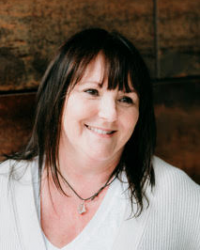Finding light after a loveless childhood
Navigating life after growing up in a home where love was scarce can feel like carrying a heavy heart. In my work with adults seeking therapy, I've met many who share this journey.

Their stories are not merely personal anecdotes; they reflect a common struggle that deeply touches our innate needs for emotional connection and understanding.
Growing up without the warmth of unconditional love or in the shadow of neglect leaves indelible marks. The early years are so crucial in making us feel secure and loved. When faced with rejection or indifference instead, it plants seeds of doubt about our worth that can grow with us, subtly shaping how we perceive ourselves and our place in the world. It's a challenging start, but recognising and gently addressing these roots is the first, brave step towards healing.
The tangled web of feelings
For many, the fallout from a loveless childhood becomes evident in the security or lack thereof within their relationships. It can be tough to let people in, trust or believe that we are worthy of affection and understanding.
This isn't just about romantic partners; it spills over into friendships and daily interactions. Struggles with expressing needs and feelings or understanding others often trace back to those first lessons in love we either received or missed. Learning to navigate these emotional landscapes later in life is possible, but it requires patience and perseverance.
The absence of a safe and nurturing environment during our formative years fosters a profound mistrust, not only towards others but also towards ourselves. This fundamental distrust can lead to relationships characterised by excessive caution or vulnerability. Furthermore, without positive role models to teach us about boundaries, we might end up setting boundaries that are either too weak or too rigid, complicating our ability to engage in healthy and nurturing relationships.
A journey, not a destination
Counselling can be a lighthouse for those adrift in the cold aftermath of a loveless childhood. It offers a space to safely explore and begin to untangle these complex emotions, to understand them and to start healing.
Reconnecting with the inner child who felt unloved, assuring them they're not alone and rewriting the narratives we've internalised about our worth is a profound part of this journey. It also involves learning to acknowledge and celebrate each small victory on the path to self-love and acceptance.
Embracing the journey with hope
The path to recovery can seem long and meandering, yet it's dotted with moments of profound beauty and strength. Group therapy, in particular, can foster a sense of belonging and serve as a powerful reminder that we're not alone in our struggles. Each step forward is a testament to our resilience and our innate capacity for change and growth.
As daunting as these early-life challenges may seem, they also hold the key to our potential for profound growth and happiness. Healing is an intensely personal, yet universally human endeavour. It involves gradually releasing the pain of the past to make room for the love and joy that lie ahead. With each step, we move closer to a life where we can love fully, trust deeply and live freely.
Embarking on this journey may feel overwhelming at first, but it's also incredibly rewarding. As we peel back the layers of our past, we uncover not just the wounds but also an incredible capacity for love, resilience and renewal. Remember, healing is not about erasing the past, but about transforming our relationship with it.
Here's to finding light, love and peace on your path to healing, knowing that every step, no matter how small, is a step towards a brighter future.

Find a therapist dealing with Family issues
All therapists are verified professionals






